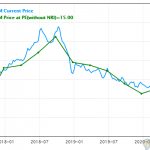Over the weekend, OPEC and its allying oil-producing countries agreed to extend oil production cuts for another month in an effort to boost the economy in the wake of the Covid-19 pandemic.
Under the prior agreement set in April, the 23-member group began curbing production by 9.7 million barrels per day on May 1, which was slated to extend through the end of June. The cuts would then begin to taper off. From July through the end of 2020, 7.7 million barrels per day would be taken offline, followed by 5.8 million barrels from January 2021 through April 2022.
As a result of Mexico reaffirming its commitment to the prior agreement, July production has now been reduced by 9.6 million barrels per day. The country currently contributes 100,000 barrels daily.
Going forward, the cuts will be reviewed on a monthly basis. The next meeting is scheduled for June 18.
“Effective compliance is vital if we are to secure the hard won stability in the global oil market and restore confidence in the unity and effectiveness of the entire group,” Saudi Energy Minister Prince Abdulaziz bin Salman said during the virtual meeting on Saturday.
While oil prices headed to a three-month high on Friday in anticipation of the meeting, they reversed course on Monday. International benchmark Brent crude was down 2.88% at $41.08 a barrel on Monday morning and West Texas Intermediate crude tumbled 3.31% to $38.24.
As a result of these developments, investors may be interested in looking for value opportunities among oil stocks trading below the Peter Lynch value.
Lynch, the renowned investor who managed Fidelity’s Magellan Fund between 1977 and 1990, developed this strategy in order to simplify his stock-picking process. With the belief good, stable companies eventually trade at 15 times their annual earnings, he set the standard at a price-earnings ratio of 15. Stocks trading below this level are often considered good investments since their share prices are likely to appreciate over time, creating value for shareholders. The GuruFocus All-in-One Screener, a Premium feature, also looked for companies with a business predictability rank of at least one out of five stars and a 10-year revenue per share growth rate of at least 6%.
As of June 8, companies that met these criteria included Evolution Petroleum Corp. (EPM), Renewable Energy Group Inc. (NASDAQ:REGI), World Fuel Services Corp. (NYSE:INT), Matador Resources Co. (NYSE:MTDR) and TC Pipelines LP (NYSE:TCP).
Evolution Petroleum
The Houston-based oil and gas producer has a $105.79 million market cap; its shares were trading around $3.23 on Monday with a price-earnings ratio of 9.43, a price-book ratio of 1.37 and a price-sales ratio of 2.89.
The Peter Lynch chart shows the stock is trading below its fair value, suggesting it is undervalued. The GuruFocus valuation rank of 9 out of 10 also supports this analysis.
GuruFocus rated Evolution Petroleum’s financial strength 9 out of 10 on the back of comfortable interest coverage and a high cash-debt ratio of 136.14. The Altman Z-Score of 5.01 also indicates it is in good standing.
The company’s profitability scored an 8 out of 10 rating, driven by an expanding operating margin and strong returns that outperform a majority of competitors. It also has a moderate Piotroski F-Score of 4, which implies conditions are stable. The one-star business predictability rank, however, is on watch as a result of a decline in revenue per share over the past 12 months. According to GuruFocus, companies with this rank typically return an average of 1.1% per annum over a 10-year period.
Of the gurus invested in Evolution Petroleum, Jim Simons (Trades, Portfolio)’ Renaissance Technologies has the largest stake with7.26% of outstanding shares. Jeremy Grantham (Trades, Portfolio) also owns the stock.
Renewable Energy Group
The biodiesel producer, which is headquartered in Ames, Iowa, has a market cap of $1.25 billion; its shares were trading around $31.97 on Monday with a price-earnings ratio of 2.76, a price-book ratio of 1.05 and a price-sales ratio of 0.54.





